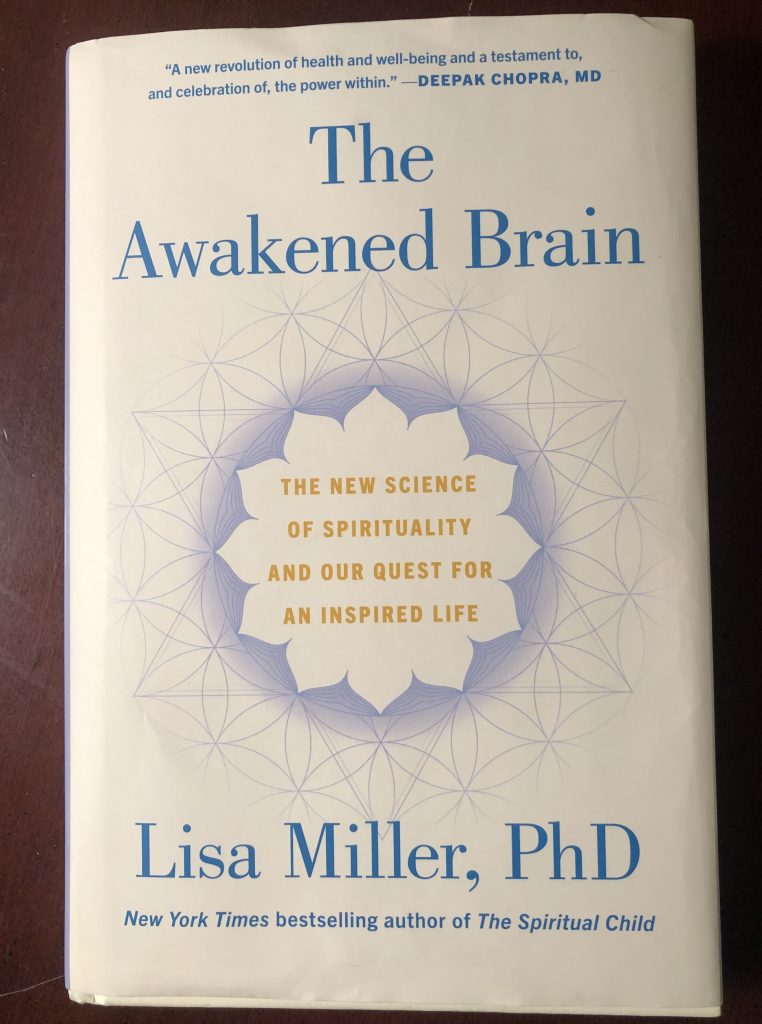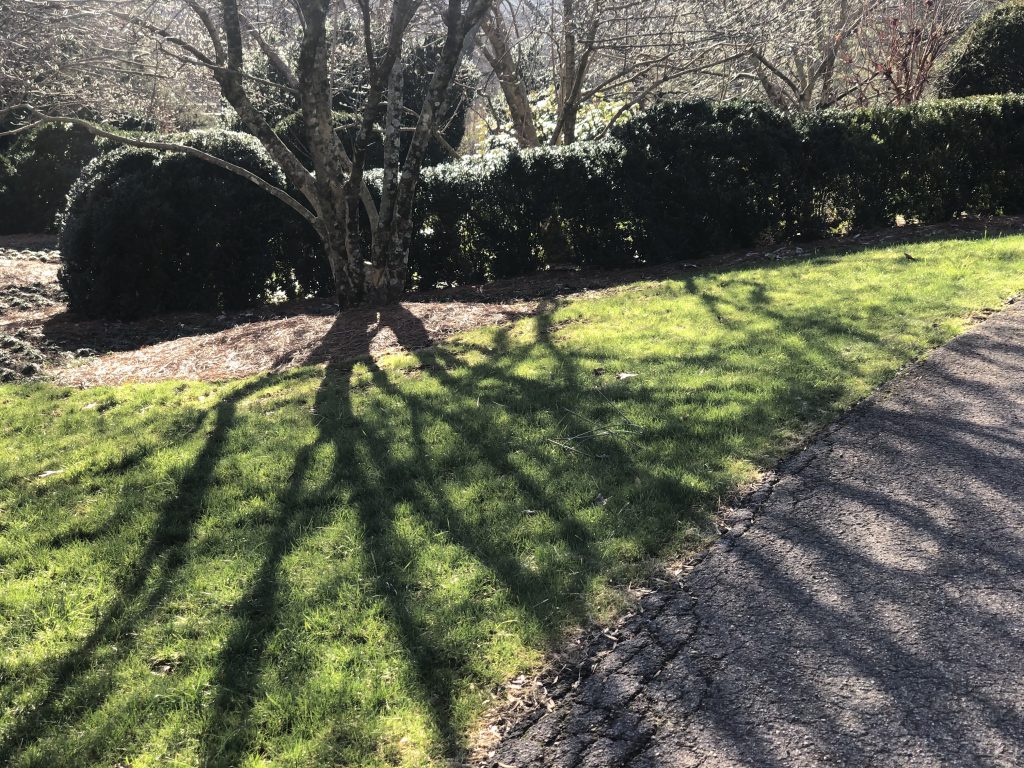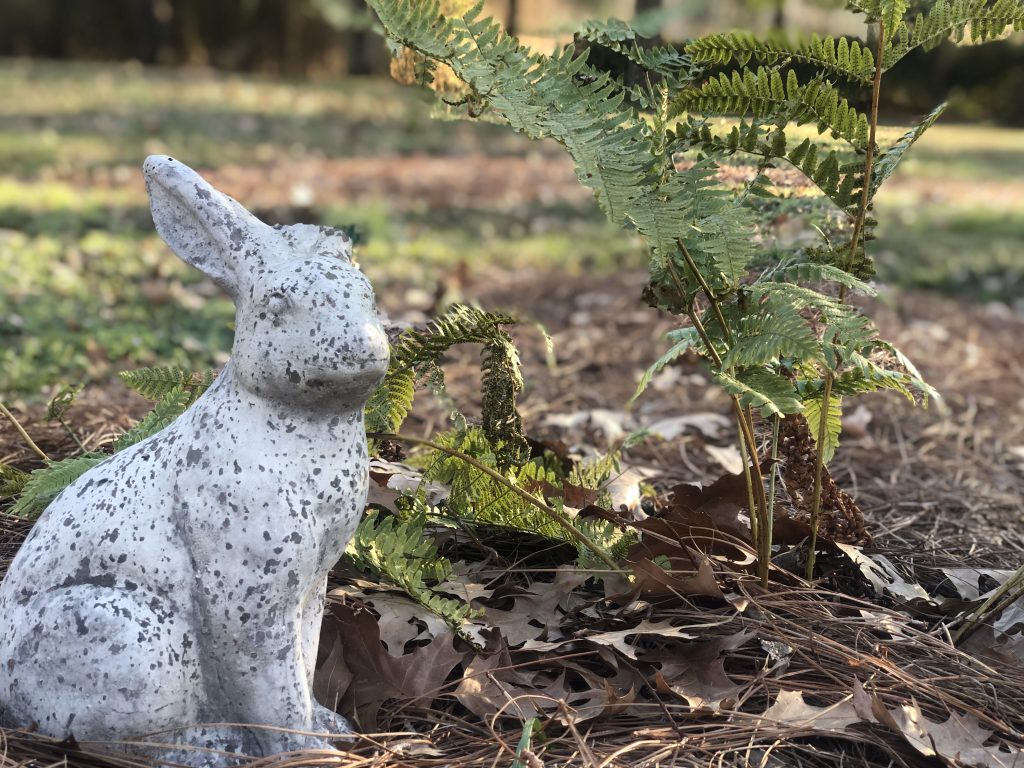Is it possible to see yourself and the world anew, from a broader perspective, honoring a deep “inner knowing” that we all possess? Lisa Miller makes a powerful case for it in The Awakened Brain: The New Science of Spirituality and Our Quest for an Inspired Life.
The title sounds New-Agey. The book is anything but.
The author, Lisa Miller, holds joint appointments in the department of psychiatry at Columbia University Medical School. She is the founder and director of the Spirituality Mind Body Institute, the first Ivy League graduate program in spirituality and psychology. Her research has been published in more than a hundred peer-reviewed medical journals.
The Awakened Brain begins with a friendly tour through her research, and that of others in the field, showing a distinct and quantifiable relationship between depression and spirituality. Here’s the short version: people with the same risk factors for depression, in terms of genes and environment, but with different spirituality profiles, experience very different (and scientifically predictable) outcomes. You’re less likely to be depressed if spirituality is a big part of your life. This seems like an obvious proposition to me, but it is new in the field of scientific/medical research on depression and possible treatments for depression.
Spirituality in these studies is not limited to regular church-going. It is characterized, instead, as “a deeply felt and perceived connection with a higher power or a sacred world – a sense of engagement and relationship, such as asking God or Source for guidance in times of struggle”. This deep sense of connection to a higher power often goes hand in hand with altruism and care for others.
The science-y part of the book is great, but what gives this book richness and depth (for me) are the stories Miller shares from her clinical practice and her own life. There’s Iliana, a teenager whose beloved father has died and who has now barricaded the door against her mother and grandmother. Jerry is a city engineer in his early sixties who attempted suicide in response to his leukemia diagnosis. For Kathleen, a stay-at-home mom with two children at home, her worst fear has come to pass: her husband has left her (and their family) for another woman. Miller herself despairs as she struggles with infertility.
Miller sees Iliana, Jerry, and Kathleen emerge from depression as they grow spiritually, not simply in response to traditional treatments for depression such as medication and CBT (Cognitive Behavioral Therapy). Miller’s most beautiful conclusions about “an inspired life” go beyond her own research and tap deep into her personal life experiences. What she wants for all of is an “awakened brain”:
When we engage our awakened awareness, we make use of different parts of our brain, and we literally see more, integrating information from multiple sources of perception. Instead of seeing ourselves as independent makers of our path, we perceive ourselves as seekers of our path. We look across a vast landscape and ask, What is life showing me now? This awakened awareness allows us to perceive more choices and opportunities available to us, feel more connected with others, understand the relationships between events in our lives, be more open to creative leaps and insights, and feel more in tune with our life’s purpose and meaning.
In awakened awareness, we don’t lose or forsake our goals. But we take off the blinders. We surrender our tight grip on a goal. We understand that life is a dynamic force that we can attune to and interact with. It’s no longer me against the world, or me treading upon the world, but me hearing what life has to say, aware that life is meeting me where I am. I still have wishes and desires and goals, I still experience disappointment and hurt – but I lean into the flow of life, paying attention to where doors open and close.
As a result of this awakened awareness, our eyes move to meaningful events. In achieving awareness, the stranger who starts talking to us on the bus might be annoying or intrusive, or just invisible. In awakened awareness, we might hear what he says – and even see how it’s relevant to our own lives. Life is no longer inert, a platform on which we try to have our needs and desires met. It’s a living, conscious dialogue that includes some interesting surprises. When we engage our awakened awareness, the hard things in our lives don’t go away. But we have the capacity to perceive our sorrow and struggle in a new way.
As I was reading this book, I began to hear the whispers of the universe all around me.






Another great recommendation for my growing stack of recommendations from you! This make me think “Great is the mystery of faith!” – wonderful Sunday post!
Thank you, friend! And it’s so lovely to hear from you this morning! I think you would enjoy this book. And I love that quote. Xoxo
Fascinating! I haven’t been aware of this evidence-based support for the use of spirituality with treatment for depression, but have used individuals’ faith and spiritual beliefs for years to supplement CBT (Cognitive-Based Therapy) in my clinical practice (I see a lot of people with depression related to PTSD). It is important to honor an individual’s particular set of beliefs – I look forward to reading about how she does that.
Anne, I would love to hear what you think of her work! It seems so – important. And seems like it might really resonate with you. Xoxo
I am a little over halfway in “Cloud Cuckoo Land”. What a fascinating book! And “The Awakened Mind” sound right up a haiku practioner’s alley (to use a very trite metaphor). Peace, LaMon
I am glad you’re deep into “Cloud Cuckoo Land”!! And YES I believe “The Awakened Brain” needs to take its place on your nightstand!! Xoxo
I cant wait to read this – thanks for the recommendation!! XO
Oh Elizabeth, let’s walk & discuss!! Xoxo
This really speaks to me. Thank you.
It means a lot to me to hear from you, Bren!! I hope all is well with you, and I can imagine you enjoying this very much. Xoxo
Terrific post on a fascinating subject – I’m excited to read. Thank you, friend!
This is a book with your name on it, dear K. It soars. Xoxo
Fabulous!
(You) xoxo
Must. Have. This. Book. So glad you chose to feature this today–couldn’t be more timely. Thank you, Jennifer!
It is timely for me too. And – would be timely for us to get a visit on the calendar!! I am thinking of you. Xoxo
Very Interesting.
Yes!! Xoxo
Nice post, Jennifer. I just put a hold on the audio version on Libby. A friend recently told me she says a quiet “Thank You” when a thought or action happens that brings her joy or anxiety. I think it acts as an open-ended acknowledgment rather than a judgement and speaks to the idea of What is life showing me? Thank you.
Oh my goodness – that is intriguing. I am going to try it today, Judy. Thank you so much for sharing this idea. It has brought me to tears this morning. I am dealing with such hard things with my aging parents right now. Xoxo
Jennifer, I’m so sorry to hear this. I can’t help you with caring for aging parents –that is hard, as you said. I can recommend a peaceful, page turner of a book I listened to when COVID ran through my family and I was getting a little unglued with pesky ruminating thoughts about how everyone would fare: The Kitchen Front. The story takes place during WW2 in England during a period of rationing and making do food wise. At the time, there was a BBC radio show called The Kitchen Front. The purpose of the show was to help women in the kitchen manage their meager rations in creative ways. There are a lot of strong women in the story. I couldn’t wait to get out of the house and go for a listen/walk. Take care. xo
I’ve been reading Positive Intelligence by Chamine which has similar themes. Use of living in the moment and discovering one’s Sage perspective vs ones Saboteurs-Judge prospective. Thank you for sharing and I must get a copy
I will order that book, B! Thank you so much for mentioning it! Thank you for being in touch. Xoxo